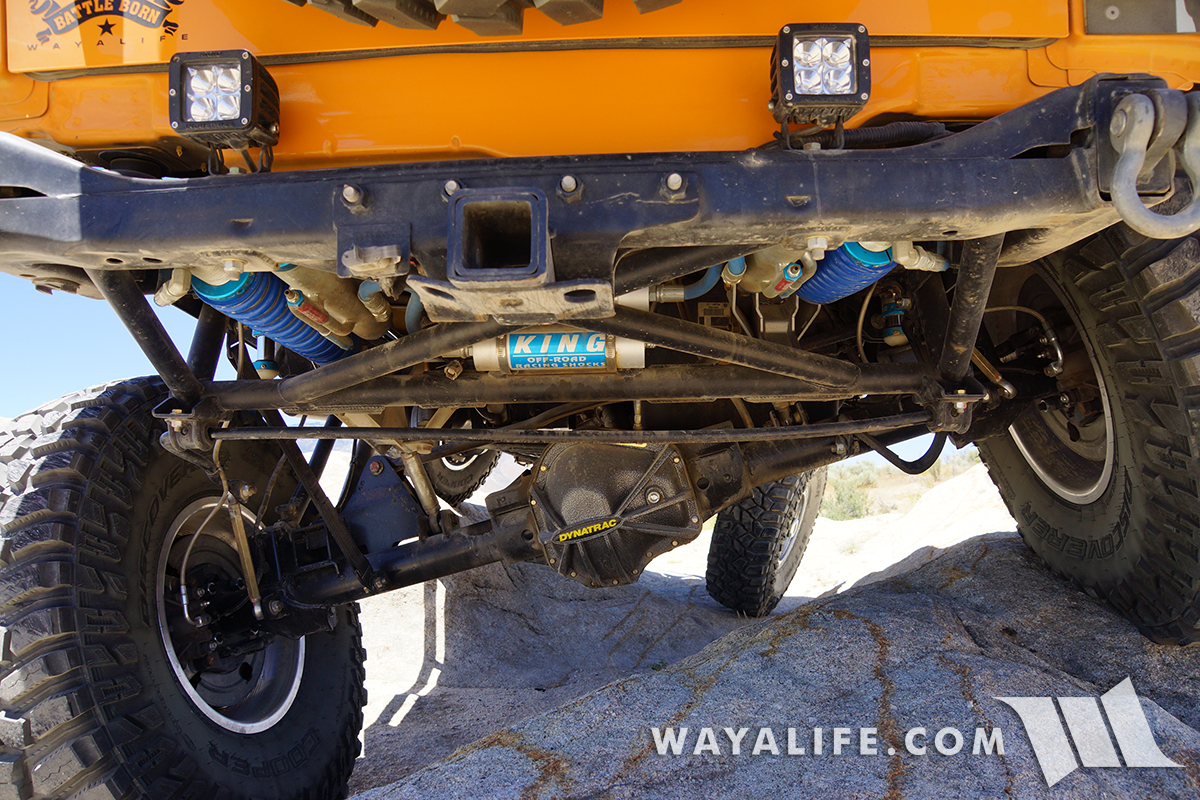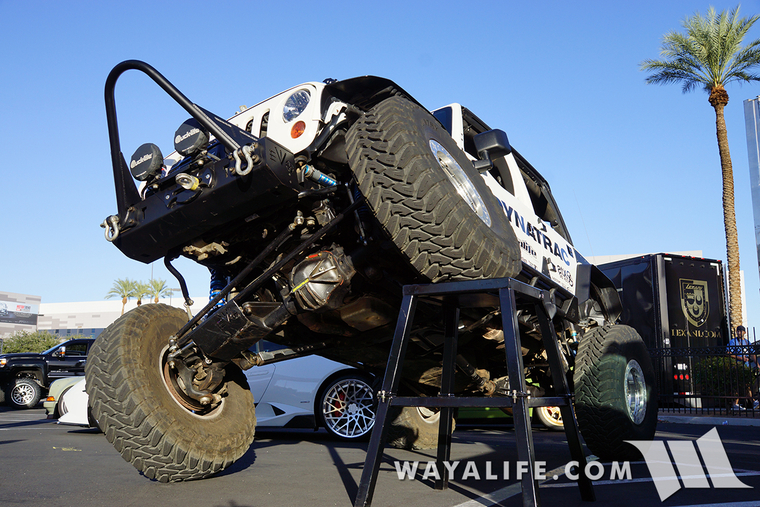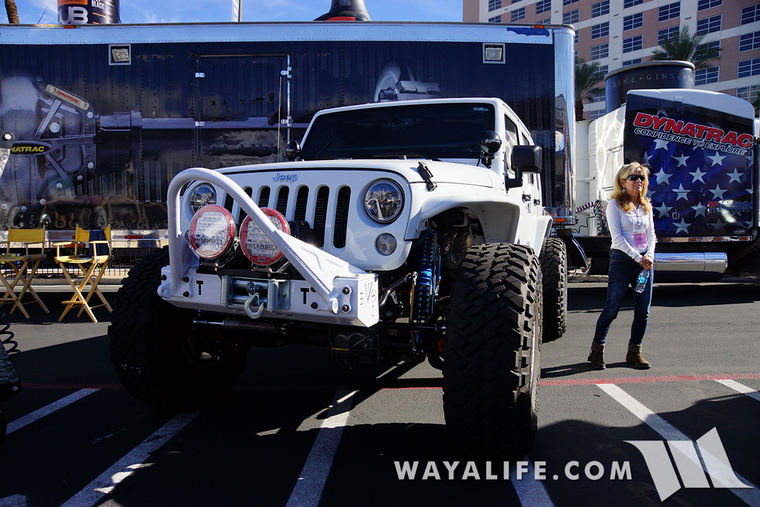You are using an out of date browser. It may not display this or other websites correctly.
You should upgrade or use an alternative browser.
You should upgrade or use an alternative browser.
Rear Sway Bar Questions
- Thread starter desertrunner
- Start date
Other than Currie anti rock what would be the best way to get the rear to articulate more with out disconnecting.
A factory rear sway bar will NOT limit the amount of articulation you have. A Currie Antirock WILL limit the amount of articulation you have.
JeepJeep75
New member
desertrunner
Hooked
Holy thread revival, almost embarrassing reading some of my old posts haha
Sent from my SAMSUNG-SM-G890A using WAYALIFE mobile app
Sent from my SAMSUNG-SM-G890A using WAYALIFE mobile app
notnalc68
That dude from Mississippi
Here's mine.
The only thing I learned, from this thread, is that olram measures his sway bar, like most guys measure their penis.:cheesy:
Sent from my iPhone using WAYALIFE mobile app
NevadaZielmeister
Caught the Bug
A factory rear sway bar will NOT limit the amount of articulation you have. A Currie Antirock WILL limit the amount of articulation you have.
Is this the same in all applications? The reason I ask is because I have the Currie Anti-Rock rear sway bar, EVO Lever rear suspension system with bypass and an ProRock XD60 rear axle. With my limiting strap completely taught and my King Air Bump Shock completely flattened, where am I loosing flex/articulation then?
Is this the same in all applications? The reason I ask is because I have the Currie Anti-Rock rear sway bar, EVO Lever rear suspension system with bypass and an ProRock XD60 rear axle. With my limiting strap completely taught and my King Air Bump Shock completely flattened, where am I loosing flex/articulation then?
It all depends on how long your limiting straps are and how tall your bump stop extensions are.
chitown35
LOSER
Other than Currie anti rock what would be the best way to get the rear to articulate more with out disconnecting.
Sent from my iPhone using WAYALIFE mobile app
Leave the stock one one. Nothing else needed. Problem solved and you just saved money. I also merged your thread here to an existing one. Hopefully you can find all of your answers here.
A factory rear sway bar will NOT limit the amount of articulation you have. A Currie Antirock WILL limit the amount of articulation you have.
Sorry but yes it can limit you depending on your setup, I've seen it on my rig and heard of it on others as well. And that was with both the 17mm and the 19mm stock sway bars. However this does not occur until around maybe ~11" of travel for my setup.
I'm sure there are other factors that go into this such as spring rate, unsprung weight, etc. Also a blanket statement that the curry will limit your flex depends on the same factors, and additionally arm length.
Now of course that will get into the argument of will that little extra flex that's being limited (by the stock bar or the anti rock) actually do anything for you, your traction, etc. which will also depend on those other factors again...
Sorry but yes it can limit you depending on your setup, I've seen it on my rig and heard of it on others as well. And that was with both the 17mm and the 19mm stock sway bars. However this does not occur until around maybe ~11" of travel for my setup.
This is 14" of vertical travel with a factory rear sway bar.

I'm sure there are other factors that go into this such as spring rate, unsprung weight, etc. Also a blanket statement that the curry will limit your flex depends on the same factors, and additionally arm length.
Here are 2 JK's with the exact same EVO DTD, long arms and axles only one is running a factory sway bar and the other is running a Currie Antirock. The first of course is Moby and I was able to drive it safely up a tall display ramp.
This is the other JK. As you can see, it's sitting flat on the ground because while I was able to drive it up the same ramp, the rear started to lift and it wasn't stable enough to leave it there.
As you know, a sway bar is a torsion bar and the higher the rate, the greater it will resist as you load it up. But hey, I can only show proof of things I have personally experienced and seen. Being that you're the expert here, your word is all that I need to hear to know that I'm wrong. :yup:
WJCO
Meme King
Maybe I'm ignorant here, but I would ASSUME the majority of Jeepers here on the forum get out on trails, enjoy their Jeeps, crawl over rocks, and never think twice about getting out during flexing just to measure their rear articulation. This whole rear sway bar topic seems stupid to me, maybe I'm missing something.
notnalc68
That dude from Mississippi
chitown35
LOSER
This is 14" of vertical travel with a factory rear sway bar.

Here are 2 JK's with the exact same EVO DTD, long arms and axles only one is running a factory sway bar and the other is running a Currie Antirock. The first of course is Moby and I was able to drive it safely up a tall display ramp.

This is the other JK. As you can see, it's sitting flat on the ground because while I was able to drive it up the same ramp, the rear started to lift and it wasn't stable enough to leave it there.

As you know, a sway bar is a torsion bar and the higher the rate, the greater it will resist as you load it up. But hey, I can only show proof of things I have personally experienced and seen. Being that you're the expert here, your word is all that I need to hear to know that I'm wrong. :yup:
This is all exactly my point, the sway bar obviously is great on your Jeep's setup. But what's important is the specific Jeep the question was about.
@Peterzampa1 - I assume you are seeing your travel being limited? When and how much? Or is it just a guess at this point and you're looking for ideas?
Maybe I'm ignorant here, but I would ASSUME the majority of Jeepers here on the forum get out on trails, enjoy their Jeeps, crawl over rocks, and never think twice about getting out during flexing just to measure their rear articulation. This whole rear sway bar topic seems stupid to me, maybe I'm missing something.
LOL!! You're not missing anything. The guys who obsess over silly things like rear sway bars and flex typically don't wheel nearly as hard as they'd like to think they do or anywhere as much. Granted, a lot of this is because they live in areas that don't have a whole lot to offer but then, there are also those guys who feel the need to justify what they chose to buy. :crazyeyes:
This is all exactly my point, the sway bar obviously is great on your Jeep's setup. But what's important is the specific Jeep the question was about.
Funny, I thought your point was to suggest that a factory sway bar limits the amount of flex your Jeep has. But, okay. :rolleyes2:
chitown35
LOSER
My point was that it CAN.Funny, I thought your point was to suggest that a factory sway bar limits the amount of flex your Jeep has. But, okay. :rolleyes2:
My point was that it CAN.
And, my proof shows that it DOESN'T.
chitown35
LOSER
I didn't worry about it either...until I almost flopped because I run really light in the rear and the combined spring / sway rate was too high and limiting me.Maybe I'm ignorant here, but I would ASSUME the majority of Jeepers here on the forum get out on trails, enjoy their Jeeps, crawl over rocks, and never think twice about getting out during flexing just to measure their rear articulation. This whole rear sway bar topic seems stupid to me, maybe I'm missing something.
chitown35
LOSER
It proves it doesn't with those spring rates and unsprung weight. If I ever put mine back on, I'll try to remember to take some pics just for you.And, my proof shows that it DOESN'T.
I didn't worry about it either...until I almost flopped because I run really light in the rear and the combined spring / sway rate was too high and limiting me.
LOL!! Right, because you almost flopped, it had to be because of your factory sway bar.
It proves it doesn't with those spring rates and unsprung weight. If I ever put mine back on, I'll try to remember to take some pics just for you.
What it proves is that you coils are too stiff and they prevented you from being at full bump and shock at a full extension. If they were, your sway bar would have ZERO effect on your Jeep. :naw:
chitown35
LOSER
So the options are either softer springs or, wait for it...a less stiff sway bar! They combine in their effects on wheel rate.LOL!! Right, because you almost flopped, it had to be because of your factory sway bar.
What it proves is that you coils are too stiff and they prevented you from being at full bump and shock at a full extension. If they were, your sway bar would have ZERO effect on your Jeep. :naw:
I mean this is like the never ending debate in sports cars. Stiff springs or stiff sway bar...

